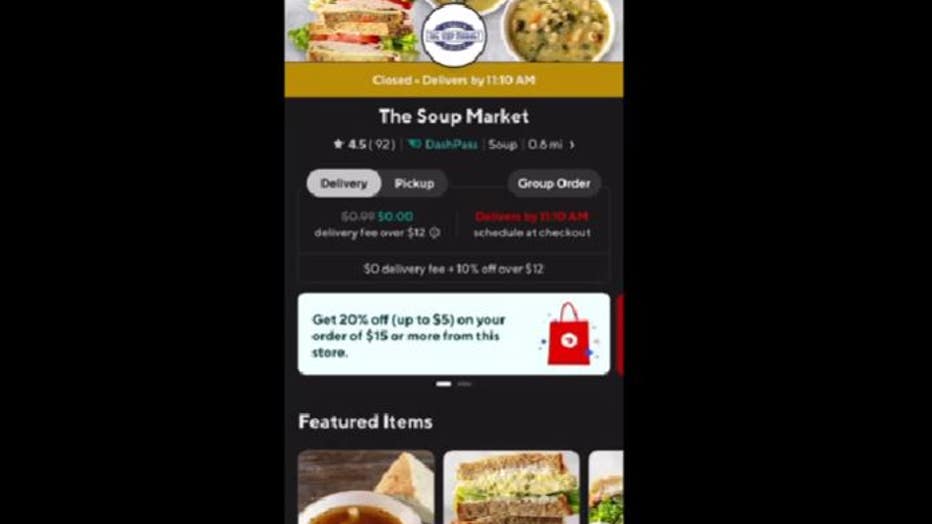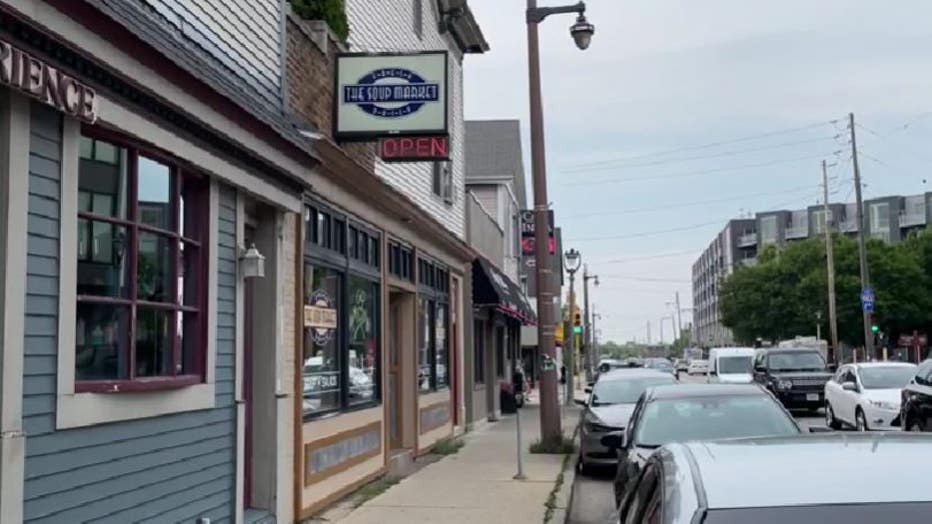Proposed Wisconsin food delivery regulations for DoorDash, others

Proposed Wisconsin food delivery regulations
The convenience of apps like DoorDash have connected restaurants and consumers and even helped them survive the pandemic, but for Culver's, one of Wisconsin's most storied restaurants, selling a hamburger can be quite the headache.
BAY VIEW, Wis. - Wisconsin lawmakers want to regulate third-party companies that deliver food from restaurants to customers.
The convenience of apps like DoorDash have connected restaurants and consumers and even helped them survive the pandemic, but for Culver's, one of Wisconsin's most storied restaurants, selling a hamburger can be quite the headache.
To sell soup in the summer, creativity is a necessary ingredient, and The Soup Market in Bay View, a restaurant devoted to providing its customers with choices, likes to have its own options, too.

The Soup Market
"We've always wanted to have a delivery component of our business and just couldn't make it work with our own delivery drivers," said David Jurena, owner.
In 2022, Jurena decided to partner with DoorDash, giving his stores control to communicate what's on the menu each day so the market can reach new customers.
"Ninety-degree day, when somebody doesn't want to leave their nice, comfortable office, you know, they can order in and never have to leave, so those are sales we wouldn't otherwise see," said Jurena.
SIGN UP TODAY: Get daily headlines, breaking news emails from FOX6 News

Culver's, DoorDash
Across town, Culver's doesn't see it the same.
"When they list our information on the website, I can tell you, every single time, it's incorrect," said Steve Anderson, Culver Franchising System general counsel.
A bill in the state Senate aims to correct the situation by regulating food delivery companies.
It would require they get the restaurant owner's consent before posting their menu online, and if a restaurant doesn't want to be included, the app must remove them within three days.
It also says drivers must have basic safety knowledge, like how to avoid cross-contamination.

The Soup Market
The bill adds that companies must tell restaurants what was ordered and when so that the process is transparent.
"These companies can currently operate without bearing any responsibility to the restaurants whose food they transport," said State Sen. Patrick Testin, (R-Stevens Point).
That last requirement is aimed at identifying who's at fault if an issue happens.
The bill does have bipartisan support in Madison.

